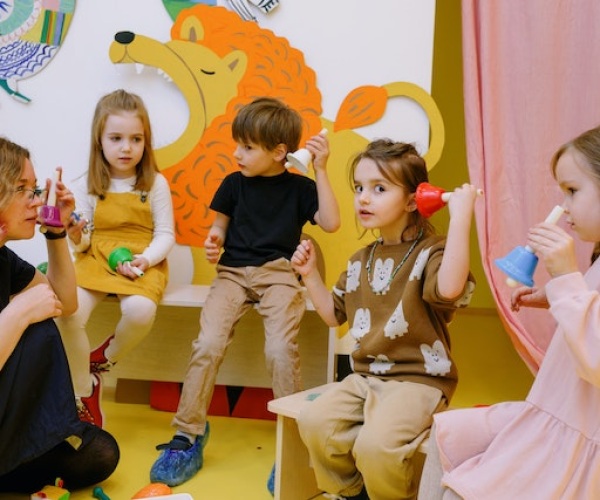Group Therapy with Children

Choosing the right kind of therapy for your child can sometimes feel daunting and overwhelming. Of course, individual therapy offers many advantages for your child. It allows the therapy to be personalised and tailored to suit your child’s needs and abilities, it supports your child in learning new, complex skills in isolation and allows time for parent education and support. But for many children (and parents), practicing these skills in a real-world setting can be tricky. That is where group programs come in.
By joining with like-minded peers in real-world settings, your child can continue to work on their speech therapy goals, practice valuable social communication skills and even build friendships. You might also be able to connect with other parents.
What is Group Therapy?
Group therapy refers to therapy sessions that are delivered in a group setting, usually including 5 to 8 children. The children within a group are of similar ages and are often working towards similar therapy goals. This ensures the children can work together, find similarities with their peers, and make friends – all while developing important skills.
Like individual therapy, the groups are run by an experienced clincian and incorporate fun and engaging activities that align with the participants interests.
Group therapy and programs are also used to offer families a flexible approach to working with more than one professional. For example, a group may be run by both the Occupational Therapist and the Speech Pathologist at the same time. Groups like this ensure children have access to the support they require to develop both language and physical skills without having to attend 2 sessions of therapy.
What Are the Benefits of Group Therapy?
Group therapy can be a functional, meaningful way to encourage your child to learn new skills and practice these new skills in a realistic, naturalistic setting.
The skills your child learns in a one-on-one therapy setting are essential building blocks to then support them in the ‘real world’ – places like classrooms, shopping centres and birthday parties.
Other benefits of group therapy include:
- The opportunity to generalise their ‘therapy’ skills
- The opportunity to develop social skills and gain support from children the same age
- Engage in fun real-world activities
- Target individual goals within a group
Of course, one of the biggest benefits of group therapy would have to be the opportunity for your child to make friends. Practicing their social skills is just one step in this process. By joining a group of peers who are not only interested in the same activity or subject matter, but also experience the same challenges is the making for long-lasting friendships that are founded in understanding and acceptance.
Whether your child is engaging in individual sessions or embarking on one of our future groups, the team at Prosper Health Collective can guide and support you every step of the way.